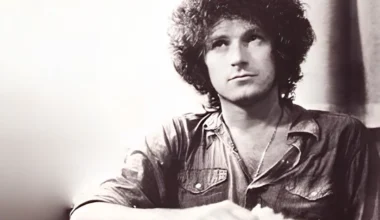It’s hard to find a positive angle when it comes to labeling someone as a “vacuous fat slob”. Throughout his career of criticism and verbal attacks, John Lydon has seldom shown a desire to be gentle. However, there is a deeper layer to this harsh criticism of Lou Reed, as Lydon’s remarks stem from a genuine sense of sorrow.
Typically, when it comes to Lydon’s harsh remarks about his fellow musicians or emerging artists, it seems as though he is deliberately seeking attention from the media. That was always the Sex Pistols’ intention in many ways, as Malcolm McLaren carefully curated the group to market shock value to the masses of the new generation. In 1976, they garnered renewed attention when Lydon repeatedly used profanity on national television alongside David Grundy.
That was a significant moment for Steve Jones, the band’s singer. “Prior to that, our focus was primarily on the music. But afterwards, our attention shifted towards the media,” he stated in his biography. It was a moment that showcased our strengths, yet also marked the start of our decline… The sudden acceleration dealt a devastating blow to any hopes of a long-term future for the Sex Pistols.
Prior to that moment, the band had found joy in reigning as the leaders of their unique scene. London’s underground venues were at the forefront of the punk movement. However, following that particular moment, as the focus intensified, a significant shift occurred when the band ousted Glenn Matlock and replaced him with Sid Vicious. The band sought someone with a wilder persona that aligned better with their aesthetic.
Vicious and Rotten were close friends for a long time. Rotten had high hopes that having his friend around would improve the dynamics of the group. Later, everyone regretted it, and Lydon often felt guilty about the decision. For Jones, it was a pivotal moment; “Since Sid joined the band, everything became anything but ordinary.”
“Until then, Sid displayed a completely innocent and naive demeanor,” Lydon commented about his friend. Everything was filled with joy and laughter. All of a sudden, he became a prominent figure in the world of pop music. Achieving fame attracts media and offers opportunities, often leading to admiration in desirable locations. Given their innocence, coupled with their notorious reputation for recklessness, McLaren’s relentless expectations and the pervasive presence of drugs, it created an ideal environment for complete and absolute downfall. Add a self-centered desire for recognition, rather than genuine passion for music or dedication to the band. It was almost inevitable that Vicious would spiral down and never recover.
So, what is Lou Reed’s role in this? During a 2009 interview with the Daily Star, Lydon made derogatory comments about the leader of The Velvet Underground, which seemed like an unfounded and targeted criticism. Lydon does not harbor any anger towards Reed. Instead, he’s filled with frustration towards himself and Vicious. Perhaps the music industry as a whole bears some of his resentment, as fame has taken precedence over everything else.
That’s all the younger generation seems to desire these days, fame. However, there have always been individuals who are willing to conform to the demands of record companies or television executives, even before my time,” Lydon stated during a discussion on the juxtaposition of fame and artistic expression. According to him, his friend was influenced by a shallow perspective on creating art. Where the focus was solely on the image and attention-grabbing behavior.
“The fame and music game can often feel trivial-minded.” He admitted that Sidney made that mistake. “He was like, ‘Drugs yeah, it’s all about drugs’ . Just because he had a Lou Reed record and he bought into the druggy persona that Lou projected.”
During his own career, particularly in the early days of The Velvet Underground, Reed closely connected his artistic expression to substance use. The song ‘Heroin’ played a significant role in marking the transition from the trippy optimism of the 1960s to a darker and more substance-heavy era. With his lyrics and soundscapes, he skillfully portrayed the dark and alluring world of the elite, intricately connecting drugs, art, and the enigmatic image of the tormented artist. However, he was just one among a multitude. One could argue that Jim Morrison, the Ramones, and many other rock acts that preceded the Sex Pistols share a similar sentiment.
Unfortunately, Vicious never had the opportunity to witness the gruesome conclusions. As he plunged into the shadowy realm he had idealized, the Sex Pistol would meet his demise. He’d miss his role models’ tragedies and avoid the devastation of substance abuse. Lydon clearly expresses displeasure about that.
Lou Reed has become a prime target due to his statement about Sid’s downfall being attributed to not having the opportunity to meet him before he became aware of his actions. If he had known the true nature of Lou Reed, he would have never dabbled with heroin.








